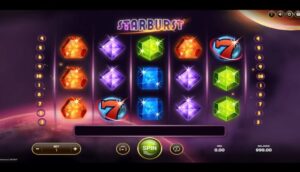
Game
You probably didn’t expect a simple card game on your computer to teach you life skills. Yet anyone who has sat through a tough round of the Freecell game knows that it’s more than just moving cards from one pile to another. It’s about planning, adapting, and learning to wait for the right move. In many ways, Freecell has been quietly teaching patience and problem-solving to millions of players for decades.
Unlike some other games where luck determines your outcome, the Freecell game puts the spotlight on skill. Nearly every deal can be solved if you think carefully enough, and that makes each round feel like a small puzzle waiting to be unlocked. It’s no surprise that players who stick with it often notice lessons from the game sneaking into other parts of their lives.
Why the Freecell Game Stands Out
Solitaire has countless variations, but the Freecell game carved out its own identity thanks to two defining features: its reliance on strategy and the presence of open “cells” that allow temporary storage. Those two elements change the experience completely.
Other versions, such as Klondike, often leave you stuck with no possible moves simply because the shuffle didn’t go your way. Freecell rarely does that. Almost every game is winnable, which means success depends more on patience and logic than on luck.
That sense of control creates a different kind of satisfaction. When you win, you know it’s because of the choices you made. When you lose, it often becomes an invitation to reflect on what you might try differently next time.
Patience in Practice
One of the most valuable lessons the Freecell game teaches is patience.
1. Waiting for the right move
It’s tempting to jump at the first possible card you can move, but Freecell rewards restraint. Sometimes the best play is to hold back, wait, and see how the layout develops. This mirrors real life, where rushing into a decision can cause more problems than it solves.
2. Accepting setbacks
Not every game flows smoothly. You’ll run into dead ends, missteps, and situations where you need to backtrack. Learning to accept those moments without frustration builds patience, not just for the game, but for everyday challenges too.
3. Enjoying the process
The Freecell game is about the journey as much as the win. Each move brings you closer to order, and appreciating those small steps helps you enjoy the process rather than only focusing on the outcome.
Building Problem-Solving Skills
If patience is one half of the Freecell experience, problem-solving is the other.
1. Strategic thinking
Every game begins with a jumble of cards, and your job is to untangle it. To succeed, you need to plan ahead, considering not just your next move but the ripple effects several moves down the line.
2. Adapting to change
Even the best plans can unravel. A move you thought was brilliant might trap an important card. Freecell forces you to stay flexible, adjusting strategies when the layout shifts unexpectedly.
3. Breaking down big problems
At first glance, a Freecell deal can look overwhelming. But once you start breaking it down into smaller steps, it becomes manageable. That skill, tackling big challenges by dividing them into smaller tasks, is just as useful in the office or at home as it is on the screen.
The Calm Challenge
Unlike high-speed video games that flood your senses with lights and sounds, the Freecell game creates a quieter kind of challenge. It demands thought but gives you time. That balance makes it ideal for players who want to engage their minds without feeling pressured.
This calm environment is also why Freecell is often used as a stress reliever. People turn to it during work breaks or while winding down at night because it offers both focus and relaxation. And while you may not consciously notice it, you’re exercising your problem-solving muscles every time you play.
Lessons Beyond the Screen
What’s striking about the Freecell game is how its lessons transfer beyond the computer or phone.
- Workplace decisions.Just as in Freecell, success at work often depends on timing, planning, and patience.
- Personal challenges.Life presents problems that look messy at first glance. Learning to approach them step by step, like a Freecell layout, makes them easier to handle.
- Daily frustrations.From traffic jams to long lines, patience is tested constantly. Players who are used to the slow pace of Freecell may find themselves better prepared to handle these situations calmly.
In this sense, Freecell becomes more than entertainment. It acts as a quiet teacher, offering practical lessons disguised as card play.
Why the Freecell Game Is Still Relevant
With all the modern gaming options available, you might wonder why anyone still chooses Freecell. The answer lies in its timeless design. It doesn’t rely on flashy graphics or fast reflexes. Instead, it offers mental clarity, logical puzzles, and the rewarding feeling of bringing order to chaos.
The Freecell game also fits seamlessly into today’s lifestyle. It works for short breaks, long waits, or even as a nightly ritual before bed. Unlike games that demand endless updates or online battles, Freecell simply waits for you, ready whenever you need a mental reset.
The Role of Nostalgia
For many players, Freecell carries an added layer of comfort because of nostalgia. It may remind you of afternoons at the family computer, or of early office days when Freecell was a welcome escape during a long shift. That familiarity makes the lessons it teaches feel even more personal.
And thanks to mobile apps, the Freecell game is no longer confined to desktops. The same lessons of patience and problem-solving are now available anywhere, whether you’re waiting at the airport or sitting on your porch with a cup of tea.
Making Freecell Part of Your Routine
If you’d like to use the Freecell game as more than just entertainment, here are some simple ways to make it part of your daily routine:
- Play with intention.Instead of rushing, use each game as a chance to practice patience and strategy.
- Limit your sessions.A round or two is often enough to refresh your mind. Avoid turning it into hours of play that cause stress instead of relieving it.
- Reflect on your approach.After finishing a game, think about what worked and what didn’t. This small reflection can sharpen your problem-solving skills.
- Treat it as a mindfulness practice.Use Freecell as a way to be present, focusing fully on the cards and leaving distractions aside for a few minutes.
A Simple Game with Lasting Value
At first glance, the Freecell game looks like just another digital distraction. But anyone who has played it regularly knows it carries more weight than that. It teaches patience by rewarding careful timing and calm decision-making. It builds problem-solving skills by challenging you to plan, adapt, and think several steps ahead.
These are not just gaming lessons, they are life lessons. And they explain why Freecell has endured for so many years, outlasting trends and remaining a steady companion for players of all ages.
So the next time you sit down for a round, remember that you’re doing more than moving cards around. You’re practicing patience, sharpening your problem-solving skills, and giving your mind a chance to reset. That’s a lot of value from something as simple as the Freecell game






